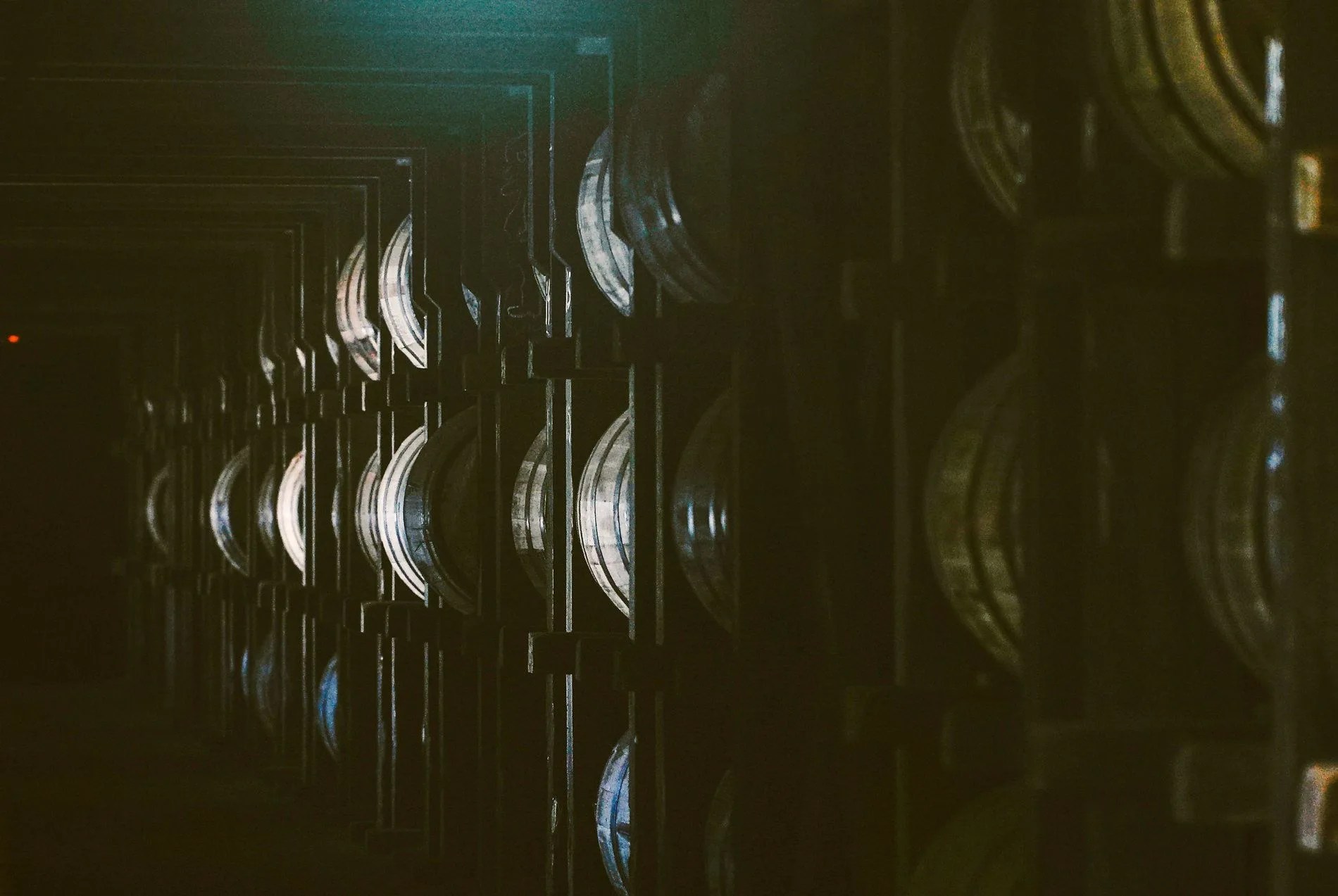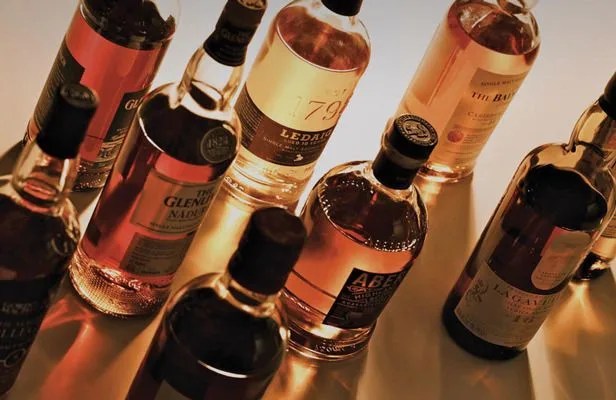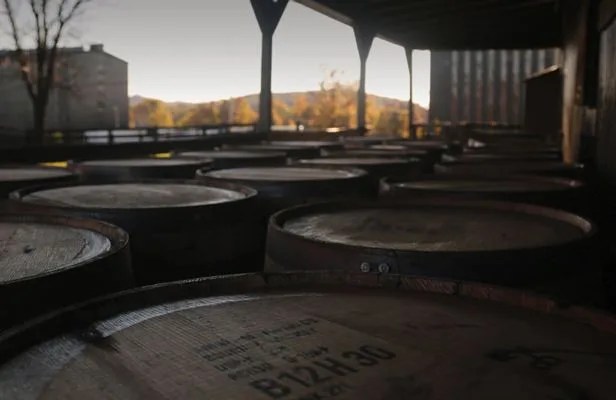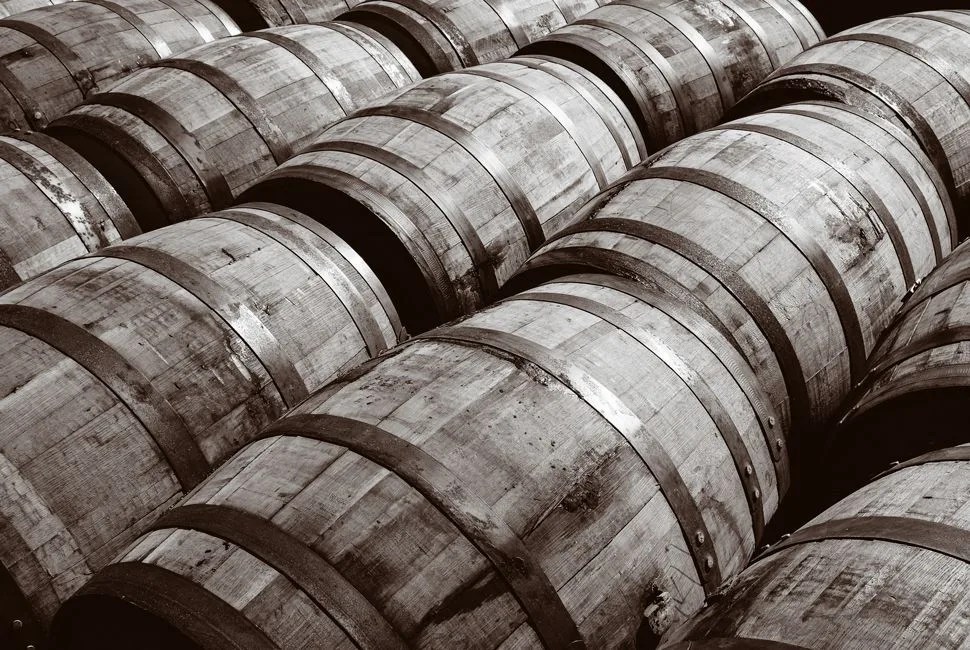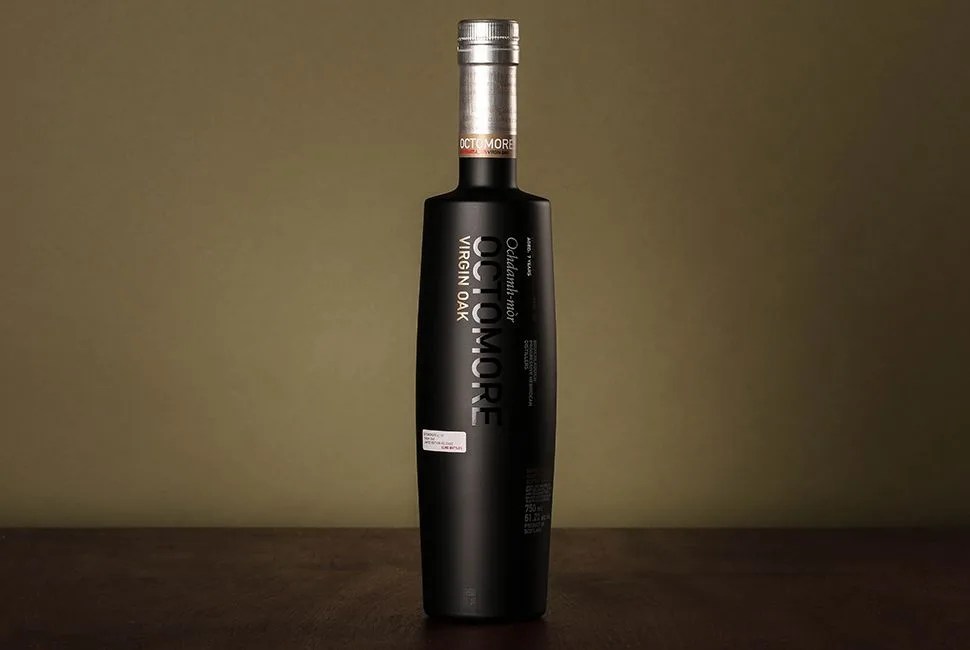As demand for expensive, aged whiskey continues to soar — sales of “super premium” American whiskey have sextupled since 2002 — supply has lagged behind. Far behind. Decades behind. CNN Money recently reported on the growing shortage of under the headline “The world is running low on old single malt Scotch,” because the single malt market is the most vulnerable to increases in demand. Single malt Scotches by definition must come from one distillery, in contrast to blended Scotches (Johnny Walker, Dewar’s, Compass Box) which can stretch the coveted and rare flavors of older whiskies over the volume of younger whiskies and still sell well in the stores. But the effect is much more widespread, affecting aged whiskey of all types — you may remember Maker’s Mark bourbon causing a stir when they threatened to dilute their recipe in 2013 during a bourbon shortage.
When shortages come, producers get creative. Especially when it’ll take years to bring supply closer to the burgeoning demand; today’s supply of 15-year-old whiskey depends on the predictions distiller’s made in 2001, back before Mad Men and when the official Kentucky “bourbon trail” was still in its infancy. To mask younger whiskey, distillers bottle “NAS” expressions, which swap an age statement for a names like “Storm” and “Select Cask.” We recently reviewed the latest addition to Bruichladdich’s Octomore series, a lineup which the distillery, through sleek marketing and an excess of peat, manages to sell for over $200 a bottle, despite being only 5 and, most recently, 7 years old. You can see these expressions everywhere: Laphroaig Quarter Cask in 2004, then Triple Wood, PX, QA. It’s all the same liquid, just tweaked a bit at the end and then sold at different prices. This gives buyers more options, pisses off geeks and, as the death of Laphroaig 18 in 2015 indicated, can deplete old Scotch before it even becomes truly old.
Concurrent with clever marketers, panicking distillers are now trying to speed up their testing process — for example, Buffalo Trace has a mini still and Warehouse X, which are devoted to cutting down on R&D times. They’re also upping production to cash in on the demand years down the line. In his interview with CNN, Charlie Whitfield, a brand manager for Macallan, said the distillery was “currently working at full capacity. Seven days a week, 24 hours a day.” Then there are the true, Silicon Valley-level disruptions.
Lost Spirits’ Thea One reactor is now a proven concept, producing rum in six days that is virtually indistinguishable from rum made over 20 years. Late last year, Rational Spirits introduced Santeria Rum, becoming the first third party to bring to market alcohol made on those magical reactors leased from Lost Spirits (Lost Spirits has promised bourbon “speed aging” technology will meet the reactors soon). It all sounds like pseudo-science, but if startup distilleries can easily get their hands on speed aging reactors, or something equivalent, they will completely upend the supply/demand disparity of “old-tasting” whiskey, making this entire premise of a shortage irrelevant to all but the most discerning.
So to summarize: there’s currently no legal way to sell 18-year-old whiskey that is made in less then 18 years; this means there’s a lot of marketing bullshit out there trying to massage more money out of current whiskey stocks; and everyone is ramping up and looking for shortcuts, which will probably help this bubble to, one way or another, burst in the coming years. So drink up and read some of our other articles to learn more about a topic that won’t be out of the media cycle any time soon.
* * *
10 Best Affordable Single Malts
